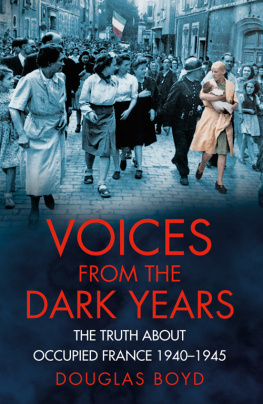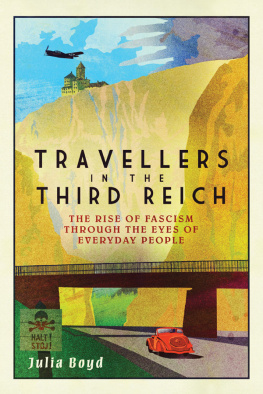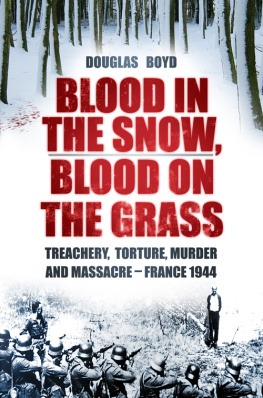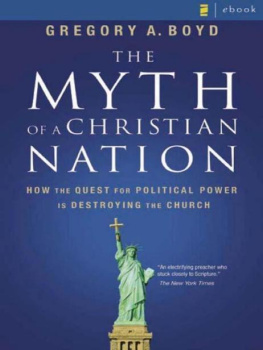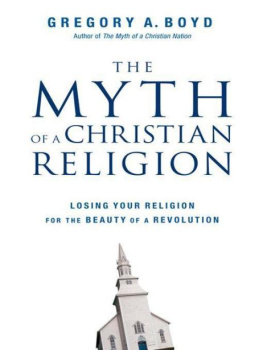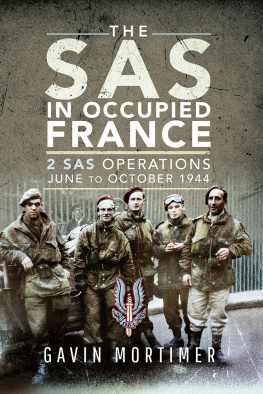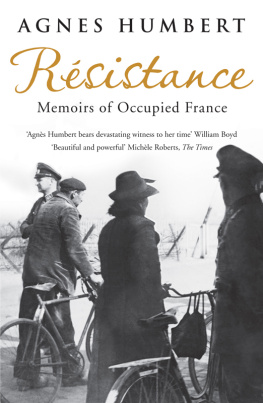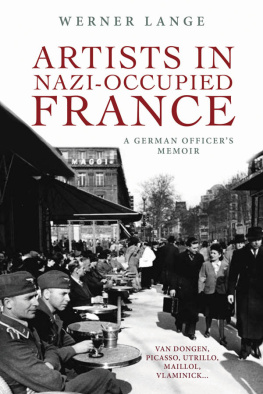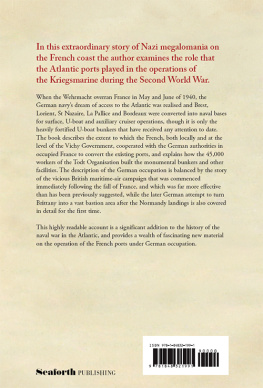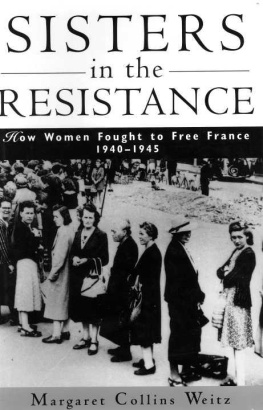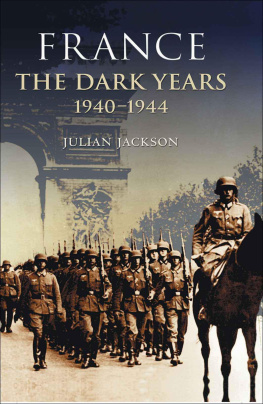
Having no literary pretensions, I never intended to publish my notes. Yet now, when so many want to forget it all happened, we must go on record. Pierre Mignon, farmer, patriot and survivor of the extermination camps
History tends not to repeat itself exactly. Next time, it could be worse. Rene de Monbrison, who wore a yellow star in the Occupied Zone
If I could not be your sword, at least I have been your shield.
Marshal Philippe Ptain, in his last message to the nation before being abducted to Germany by the SS in August 1944
Everything I did was for France and the cause of peace.
Pierre Laval, shortly before he was executed for high treason at Fresnes prison on 15 October 1945
Many people contributed to the research for this book by reliving with me their experiences during the dark years of the German occupation of France. They recalled moments of anguish and joy, of shame and triumph, of fear and elation. They unearthed personal papers, showed me treasured mementoes and lent precious documents, manuscripts, photographs and books on trust. Many said at the end of our meeting, I havent helped you much, but research is like an iceberg: it is the nine-tenths below the water-line that gives balance and perspective.
From Bordeaux in the south-west of France to Schirmeck in Alsace, survivors asked to remain anonymous after telling me things they had never divulged to anyone else. To them goes my greatest gratitude. Among those I can thank, in Tarn-et-Garonne, Andre Fourcassi, ne Giraud, was my unassuming guide to the misty timescape of the past, opening doors I should never otherwise have known existed; Chantal Frasse welcomed me to the Archives Municipales of Moissac; Joseph and Paulette Gouzi offered hospitality, shared memories and lent precious unpublished documentation; Jean-Claude Simon made available photographs of the Maison de Moissac rescue operation; and Franoise Blanchard, ne de Monbrison, unlocked the rich resource of her familys published and unpublished records of the occupation.
In Paris, Naomi Wilson shared her research for a PhD thesis on womens experience of the occupation. In Gironde, Christian Chabrier, Jacques de La Bardonnie, Cathrine and Robert Hestin and many other neighbours and friends dug into their personal memories; Trudi Higgins supplied correspondence from Ste-Foy-la-Grande; Maj. Len Chaganis unearthed material on Operation Cockade; and the wife of dying hero Henri Salmide (formerly Heinz Stahlschmidt) put aside her grief to talk to me. In Lot-et-Garonne, Guy de La Bardonnie generously shared both published and unpublished resources. In Charentes, Philippe Delaurain gave me the benefit of his encyclopaedic knowledge of the occupation, as well as access to his unsubsidised museum Le Muse de la Poche, which told so well the story of the Royan pocket of resistance until it had to close for lack of funds. And fellow BBC-pensioners Don Craven and Brian Johnson helped me track down the Morse Vee-sign used for so many broadcasts to Occupied Europe.
With good reason, historical writers thank the spouses or partners who tolerate the solitude imposed by their craft and their spending more time with the dead than the living. For a person as sociable as Atarah, this is doubly hard; her enthusiasm and active support is more valued than she imagines. Among my predecessors on the research trail, American historian Robert Paxton deserves acclaim for first shining the light of enquiry on the dark years at a time when nobody in France wanted to talk about them. On a professional plane, my thanks go to agent Mandy Little for getting the first edition published and to commissioning editor Mark Beynon, editor Rebecca Newton, proofreader Alwyn Harrison and designer Jemma Cox at The History Press for this edition.
A UTHOR N OTE
1. All translations are by the author, unless otherwise attributed.
2. All reasonable steps have been taken to clear copyright material. If any copyright has been inadvertently infringed, please write to the author, care of the publisher.
3. All photographs are from the authors personal collection, unless otherwise stated.
C ONTENTS
BCRA | Bureau Central de Renseignements et dAction (eventual title of the London-based co-ordinating centre of Gaullist intelligence networks) |
BEF | British Expeditionary Force |
CGQJ | Commissariat Gnrale aux Questions Juives main body charged with enforcing anti-Semitic laws |
CNR | Conseil National de la Rsistance |
EIF | Eclaireurs Isralites de France the Jewish Scout movement |
ERR | Einsatzstab Reichsleiter Rosenberg Nazi cultural agency |
FFI | Forces Franaises de lIntrieur Free French forces inside France |
FTP | Francs-Tireurs et Partisans left-wing Resistance movement |
GFP | Geheime Feldpolizei German Military Police |
GP | Groupe de Protection Ptains bodyguard |
LVF | Lgion des Volontaires Franais contre le bolchevisme French volunteers fighting in German uniform on the eastern front |
MSR | Mouvement Social Revolutionnaire a fascist movement |
OKW | Oberkommandantur der Wehrmacht German Army High Command |
PCF | Parti Communiste Franais French Communist Party |
PPF | Parti Populaire Franais Doriots extreme pro-German party |
PQJ | Police aux Questions Juives special anti-Jewish police force |
RG | Renseignements Gnraux French equivalent of Special Branch |
RHSA | Reichshauptsicherheitsampt Himmlers umbrella organisation running the SS and SD |
RMVE | Rgiment de Marche de Volontaires Etrangers temporary Foreign Legion regiment of volunteers in 1940 |
RNP | Rassemblement National Populaire - Dats extreme right-wing party |
SD | Sicherheitsdienst Amt VI of RHSA covering external security |
SNCF | Socit des Chemins de Fer Franais French state railway system |
SOL | Service dOrdre Lgionnaire forerunner of the Milice |
SPAC | Service de Police Anti-Communiste anti-Communist police units |
STO | Service de Travail Obligatoire organisation of compulsory labour in the Reich |
UGIF | Union Gnrale des Isralites de France umbrella organisation by which the Germans organised the fate of the Jewish community |
T he seed of this book was sown at a diplomatic reception in Bordeaux by an elderly Englishman, who confided to me out of earshot of the French guests that he first saw the city through the bombsight of an RAF Lancaster during the Second World War. When I asked whether he had been targeting the immense bomb-proof shelters, constructed by the Todt Organisation for the long-range German submarines that wrought havoc among the Atlantic convoys, he laughed: With all that Jerry flak coming up at us, all I cared about was dropping my load and getting back home in time for breakfast.
Since befriending a French assistant from Normandy while at school in Canterbury, I had known that RAF strategic bombing raids killed thousands of innocent French civilians during the war and destroyed entire towns, but it was not until after meeting the bomb-aimer that this book took shape as an account of the occupation of France, not as seen from London and Washington, but as lived by the French people.
Next page
